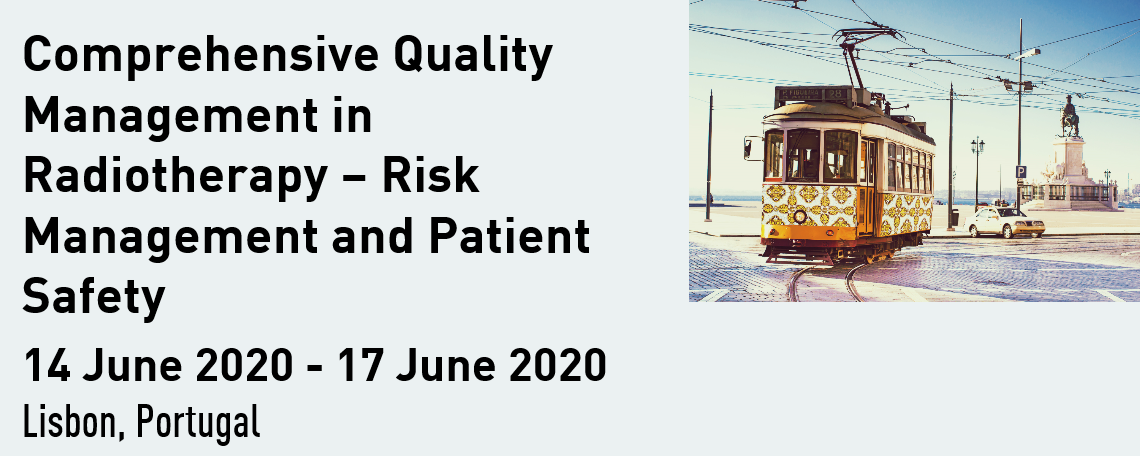Comprehensive Quality Management in Radiotherapy
Comprehensive Quality Management in Radiotherapy – Risk Management and Patient Safety. 14-17 junio 2020. Lisboa (Portugal).

Learing Outcomes
By the end of this course participants should be able to:
- Understand the cause, frequency and effects of incidents/accidents in a radiotherapy department
- Understand the principles of reactive management to incidents (registration, analysis and feed back to the Quality Management System) and of proactive management of safety (incident prevention)
- Know how to communicate around radiotherapy incidents, with the patient and his/her relatives, within the department itself and with the media.
Course Content
- What is risk? Psychology of making mistakes
- Ethics for radiation medicine professionals. A just reporting culture
- Example of the genesis of an accident (take a recent example, relevant to radiotherapy of today)
- ROSEIS: the precursor in Europe. Frequency of incidents (who reports and what type of incidents are reported)
- Taxonomy and classification, distinction between incident and accident
- Analysis and return on experience (root cause analysis)
- Failure mode and effect analysis
- PRISMA as example (The Netherlands)
- Benchmarking
- Health failure mode and effect analysis (HFMEA), a prospective risk management method
- Practical exercises (hands on)
- Communication:
- to the patient
- to the media
- to the organisation (departmental, hospital level)
- Specific training of staff, internal and external (team management)
- National systems for reporting to regulatory authorities (France)
- Comprehensive quality management in Radiotherapy Legal aspects of incident reporting
- Performance indicators.
Prerequisites
The two courses on Quality Management, Risk Management and Quality Assessment, have been designed to be complementary and it is recommended to attend both to get a complete picture of quality management. However, the order in which they are taken does not matter. To fully profit from the course it is recommended that participants have at least three years’ experience in a radiation oncology or medical physics department to have a complete picture of the radiotherapy process.
